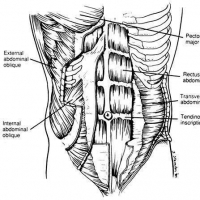Preparing for Surgery and Procedure
The Weeks leading up to Surgery
1. Exercise
a. The best time to begin your exercise program is before your surgery. The sooner you start exercising, the easier it will be after you have surgery. Start moving more, but don't injure yourself. Walking on a daily basis improves your circulation and makes breathing easier during recovery. You will also benefit from having a plan in place prior to your procedure eliminating the need to establish one during your recovery phase. A pedometer is a great tool to help you track your walking progress. If joint pain becomes an issue and prevents you from walking daily, you may want to look into an aquatics program. Water exercises still condition your breathing but are not weight bearing and therefore are easier for people who have joint problems.
2. Hygiene
a. Skin integrity is essential for the operative site. It's important to maintain good hygiene, by keeping skin clean and dry, especially in the days before surgery. Skin breakdown could possibly cause your surgery to be delayed.
3. Medicines
a. It is important to avoid aspirin and all aspirin-based medicines for at least 10 days prior to surgery. Herbal medications such as St. John's Wort, Gingko Biloba, garlic, etc. should be avoided, as these have blood-thinning properties. Other herbal supplements such as kava and valerian root are known to interact with anesthesia and should also be stopped at least 10 days prior to surgery.
b. Remember to tell your surgeon all of the medicines and herbal supplements your are taking. Do not forget to check the label of your multivitamin, as many can contain herbal supplements as well. Remember to check all labels of over-the-counter medicines, since certain ones can contain aspirin, too. When in doubt, please check with your pharmacist and/or surgeon.
4. Tobacco
a. Since smoking hinders proper lung function, it can increase the possibility of anesthetic complications. Smoking can increase your risk of complications such as deep vein thrombosis (blood clots in the legs). Smoking also reduces circulation to the skin and impedes healing. Smokers who undergo anesthesia are at increased risk for developing cardiopulmonary complications (pulmonary embolism, pneumonia and the collapsing of the tiny air sacs in the lungs) and infection.
b. Besides the well-known risks to the heart and lungs, smoking stimulates stomach acid production, leading to possible ulcer formation.
c. Patients are required to stop smoking eight weeks before surgery. Patients must also agree to permanently refrain from smoking after surgery. Ask your primary Care Physician to write you a prescription for a smoking cessation aid, if necessary.
1. Exercise
a. The best time to begin your exercise program is before your surgery. The sooner you start exercising, the easier it will be after you have surgery. Start moving more, but don't injure yourself. Walking on a daily basis improves your circulation and makes breathing easier during recovery. You will also benefit from having a plan in place prior to your procedure eliminating the need to establish one during your recovery phase. A pedometer is a great tool to help you track your walking progress. If joint pain becomes an issue and prevents you from walking daily, you may want to look into an aquatics program. Water exercises still condition your breathing but are not weight bearing and therefore are easier for people who have joint problems.
2. Hygiene
a. Skin integrity is essential for the operative site. It's important to maintain good hygiene, by keeping skin clean and dry, especially in the days before surgery. Skin breakdown could possibly cause your surgery to be delayed.
3. Medicines
a. It is important to avoid aspirin and all aspirin-based medicines for at least 10 days prior to surgery. Herbal medications such as St. John's Wort, Gingko Biloba, garlic, etc. should be avoided, as these have blood-thinning properties. Other herbal supplements such as kava and valerian root are known to interact with anesthesia and should also be stopped at least 10 days prior to surgery.
b. Remember to tell your surgeon all of the medicines and herbal supplements your are taking. Do not forget to check the label of your multivitamin, as many can contain herbal supplements as well. Remember to check all labels of over-the-counter medicines, since certain ones can contain aspirin, too. When in doubt, please check with your pharmacist and/or surgeon.
4. Tobacco
a. Since smoking hinders proper lung function, it can increase the possibility of anesthetic complications. Smoking can increase your risk of complications such as deep vein thrombosis (blood clots in the legs). Smoking also reduces circulation to the skin and impedes healing. Smokers who undergo anesthesia are at increased risk for developing cardiopulmonary complications (pulmonary embolism, pneumonia and the collapsing of the tiny air sacs in the lungs) and infection.
b. Besides the well-known risks to the heart and lungs, smoking stimulates stomach acid production, leading to possible ulcer formation.
c. Patients are required to stop smoking eight weeks before surgery. Patients must also agree to permanently refrain from smoking after surgery. Ask your primary Care Physician to write you a prescription for a smoking cessation aid, if necessary.
Related Articles
-
3 Weight Loss Myths Are Making You Fail At Losing Weight
To reach your weight loss goals, you need to take a closer look at wha
-
Learn Which Body Fat Loss Programs Are Actually Worth Your Time & Effort And Find Out How Quickly You Can Lose The Weight! - Ever Loss
CLICK HERE NOW to Download The EverLoss System and Start Losing 23 LBS
-
The Every Other Day Diet - Easy Weight Loss Diets for Junk Food Addicts!
The Every Other Day Diet - Easy Weight Loss Diets for Junk Food Addict
-
The Diet Solution Program Rapidshare-You can get to know how to lose weight by eating appropriate foods
Ladies, do you want to get rid of body fat? When you are trying to los
-
Stop Blaming Genetics For Your Lack Of Weight Loss
When looking to lose weight to burn body fat using a proper workout pr
-
How To Get The Best Out Of Your Fitness Instructor
Now that weve covered those aspects of fitness instructors, lets turn
- DON'T MISS
- Effective Weight Loss is Required to Track Calories on a Daily Basis
- Lose Weight by Following an Effective Weight Loss Diet
- Weight loss not an issue with HCG
- Final Phase Fat Loss System-Final Phase Fat Loss Review
- 3 Easy Tips to Lose Unwanted Belly Fat
- 8 Ways to Rev up Your Metabolism
- Drop some weight With Caralluma Fimbriata Weight loss program Supplement
- How To Get Toned Legs
- Effective weight loss programs by CMWM
- Selecting your options for weight-loss surgery




